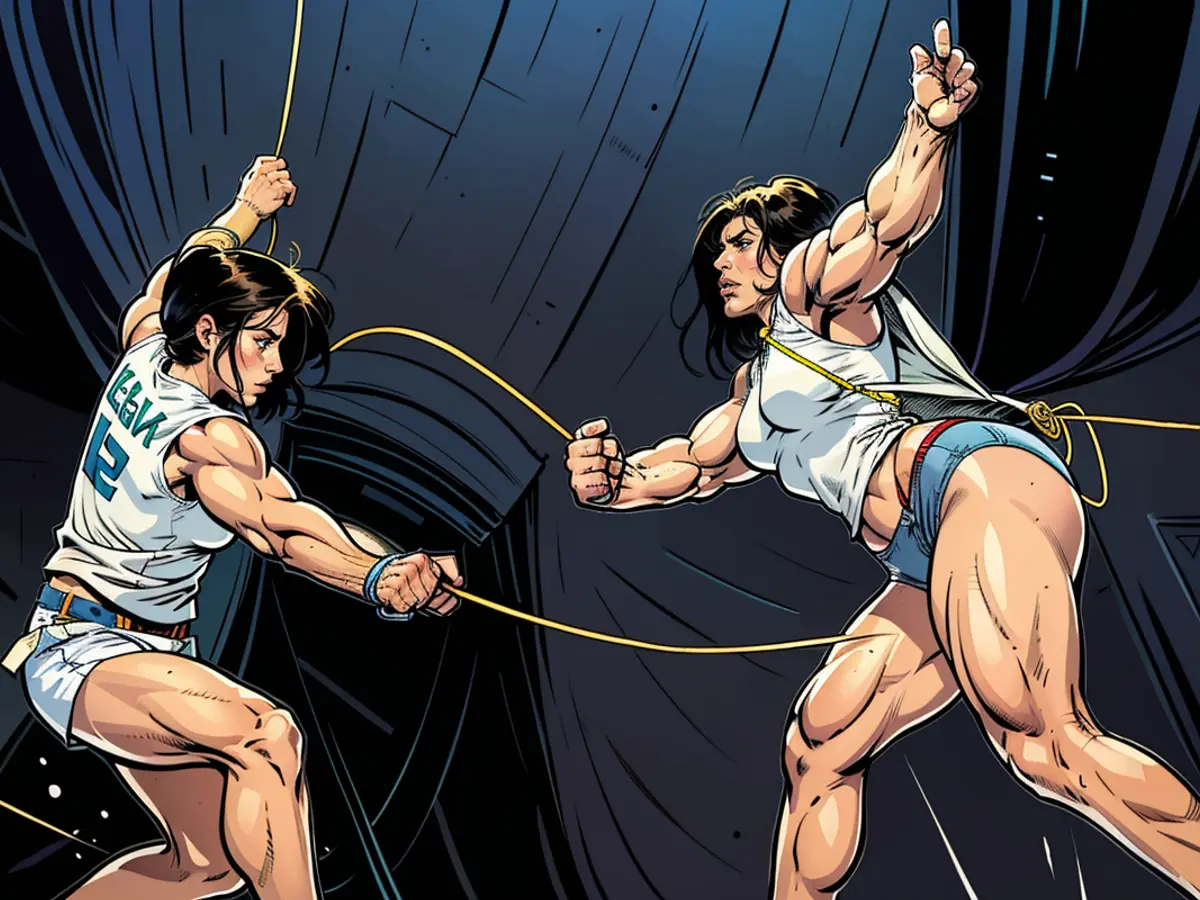Germany is becoming an Olympic fencing dwarf
For the third time in a row, German fencers have come up empty-handed at the Olympics. The sports director speaks about the major upheaval - and expects no quick recovery. What's going wrong with the once successful German fencers?
Anne Sauer couldn't hold back her tears. The impressive setting in the elegant Grand Palais had given her a "goose bump" feeling, said the Florett fencer. But in the end, she was disappointed. The German Fencing Federation (DFeB) waits for an Olympic medal at least four more years. According to the sports director, even longer. He hopes that by the Games in 2028 in Los Angeles, we'll have a larger team, he said, Tobias Kirch. "But I believe it will take at least eight years before we can really be successful again."
What's wrong with the once successful German fencers? With the smallest Olympic squad since 1952, they traveled to Paris - with just two athletes. A day after sabre fencer Matyas Szabo's dramatic loss to Egyptian Ziad Elsissy, Sauer also fell short in the quarterfinals against Italian Alice Volpi.
"I confirmed my performance. But a surprise would have been nice too," said Sauer, who was hit on the head during the match. After a brief check by a doctor, she was able to continue, but couldn't prevent the loss. Like in 2016 in Rio de Janeiro and 2021 in Tokyo, the DFeB was once again without a medal. The last medals were won in 2012 in London, when Britta Heidemann took silver with the sabre and the Florett men took bronze.
"Old times will never come back"
"The downward trend has been observable for many years," said Kirch in front of the picturesque backdrop of the Grand Palais. And there are various reasons. We're in a transition and have already made both structural and personnel changes, explained the sports director, who has been in office since May 2023. But it takes patience. And understanding.
"Old times will never come back. We need to look at how we can be successful under the new conditions," said Kirch. What he means by that: German fencing successes are certainly possible, but the conditions for achieving them have changed. "Twenty years ago, the world of fencing was still different," explained Kirch. "It was still very European. Now the whole world - partly under very professional structures and with very good incentive systems."
International competition is gearing up
The international competition has not only caught up, but in certain areas, the Germans have even fallen behind. "When people talk about what Germany used to be in fencing, from my perspective, apples are being compared to pears," said sabre fencer Szabo after his third Olympic participation. He doesn't want to diminish the achievements of past athletes, but the situation today is simply different than it was then. For example, when he sees "how much money the athletes earn in South Korea and what is being invested in the sport there, it's no wonder they're first in the world rankings and win the Olympic title," Szabo said after Oh Sanguk's sabre coup. Other nations are also attracting athletes with scholarships.
Youth problems, fewer financial resources than before - the way of German fencers is rocky. Perhaps they have rested on the achievements of the past for a while. "The federation must ask itself some tough questions," admits sports director Kirch and assures: "He's doing it now." To take on more than a supporting role on the Olympic stage in four years in Los Angeles or at the latest in 2032 in Brisbane.
Despite Germany's fencing team not securing a medal at the Olympic Games 2024 in Paris, Tobias Kirch, the sports director, maintains hope for a larger team and potential success in the future Olympic Games in Los Angeles in 2028. Interestingly, Germany faced stiff competition in Paris, with only two athletes in the smallest Olympic squad since 1952.
With the French capital hosting the Olympic Games 2024, Germany's absence in the medal count is not unique to Paris. In fact, this marks the third consecutive Olympic Games where German fencers have left empty-handed, since the bronze medal wins in 2012 in London.








